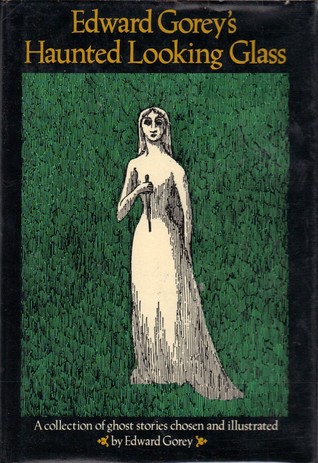In April, I am participating in a blog challenge. For each day of the month, we're to write a post that begins with a letter of the alphabet. I've decided to write about evocative words.
A is for Ambivalence
I am often ambivalent.
By this, I don't mean that I'm wishy-washy or indecisive. I'm no Charlie Brown.
But I am of two (or even three) minds on many subjects. I'm good at looking at an issue from other angles, understanding the opposing point of view. I can see the flaws in both sides of an argument or standpoint.
This complicates my life sometimes. I want time to think and consider. Snap judgements make me uncomfortable. In fact, I tend to view them as sign of limited intelligence. Then, I become ambivalent about the arrogance of that attitude. After all, who am I to judge someone else's intelligence?
I'm even ambivalent about ambivalence itself. Ambivalence may complicate things, but that isn't all bad. It's at the heart of a lot of great art--that exploration of the gray areas of life. Maybe life is easier for those who can see it simply in clearly delineated dichotomies. But, I suspect it is less interesting. Doing the right thing is easy when it's clear: killing is wrong. But, it's interesting when it's less clear: what about war? abortion? the death penalty? self defense? zombies?
It's in exploring ambiguities that epiphanies are born, that inventions are created, that change comes. It's the pondering of what else might be true that brings one nearest to the heart of truth.
Given my recent commitment to leave teaching after eighteen years, ambivalence seems a good watchword for me right now. I've been ambivalent about the work for a long time. I wrote the poem below around 2002.
No Child Left Behind.
I. Pessimism
America is created
each day
in uncomfortable desks
where minds reach to expand
above cramped knees,
where night-weary eyes glaze over
bored by lack of vision,
and ears tune to distant voices,
that somehow seem more near,
voices which sing of other lives and loves
in worlds tapping feet long
to explore
America was created
by those who hungered
for food, for faith, for freedom.
Again stomachs growl
across the land,
mouths ache
to taste
to experience
to find and hold and own.
Thousands go hungry.
Appetite comes early,
but the keys to the kitchen
are withheld for eighteen years,
a sentence for crimes
which only might be committed.
America is created
in classrooms
too hot or too cold
where the equipment does not work
or is out of date
and the teacher is sick
at heart,
where the subjects are chosen
by forces mysterious as planets,
and assignments doled out,
checked off, and handed back
to be crammed into backpacks,
crumpled into pockets
or left--efficient
system.
The machine cranks on
little knowing what it
creates or why.
II: Optimism
You can’t tell her
it’s time to give up.
She won’t believe
that a boy of 17 is done,
complete, beyond reach.
No matter what he’s done.
No matter what’s been done to him.
She refuses the notion
that the pregnant girl of 15
cannot be more than a welfare mother
like her mother before her.
She believes in them all,
in that still-wrapped gift
called potential,
and prays each will find
their spark, their reason.
She wants to teach them self-reliance
in the face of despair;
she knows the lengths
you can travel on perseverance alone.
Her classroom walls proclaim
the value of hard work,
honesty, attitude, and imagination,
promising excellence and success.
It’s not that she’s naïve
or a blind idealist.
She sees the forest and the trees,
she knows what’s what
and her ass from a hole in the ground.
It’s a kind of
stubbornness.
She thinks of it as
resolve,
rising to the
challenge.
They say she’s soft,
that she gives too many second chances.
And she does get hurt,
disappointed and angry, but
her hope feeds on small things—
sparks of understanding seen
when eyes meet across a book;
a girl who realizes the answer
to her own question
while she is still forming it;
overhearing kids arguing
politics in the cafeteria,
quoting something they’ve read
or heard within the walls
of her classroom;
the wonder of witness,
the moment when beauty takes hold
the age-old discovery
discovered once more,
as new as the first eureka,
but heralded privately,
in the storehouse of her heart.
It puffs her up,
fills her with,
not just pride,
but pleasure,
a feeling that she
matters
in the larger world,
that she has done
her part.
Some may laugh at
her willingness
to throw starfish
back into the sea,
but she’ll keep at
it all the same.


.JPG)





